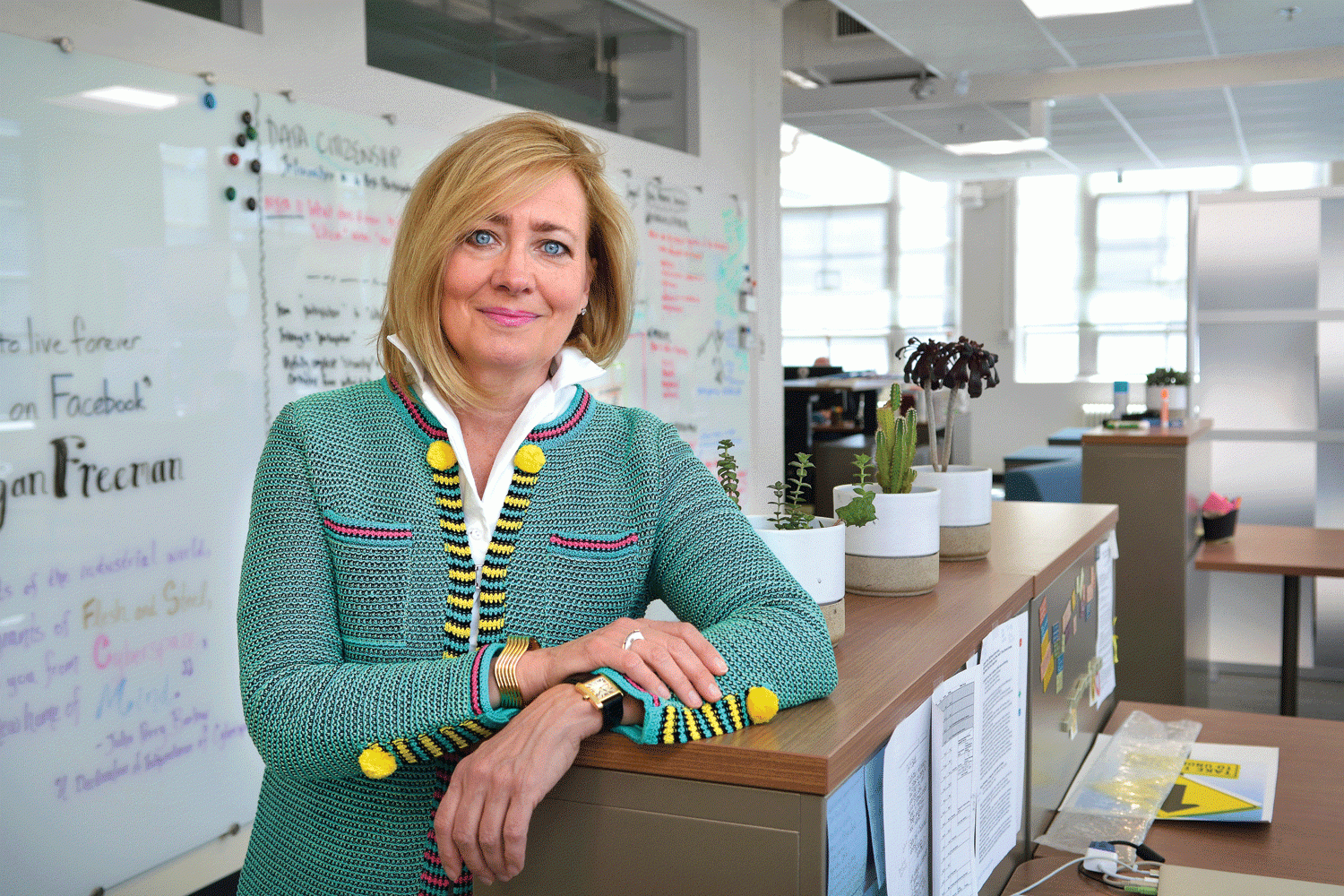
Inquiry: CMCI Dean Lori Bergen

Pushing Boundaries
Lori Bergen joined CU-Boulder last July as founding dean of the College of Media, Communication and Information (CMCI), the campus’ first new college in 50 years. Here the former Kansan talks about pushing boundaries, cultivating fearless self-learners, seeing Colorado by train and a memorable fiddle rendition of “Orange Blossom Special.”
New colleges don’t grow on trees. What do you see as the fundamental opportunity before you?
To build something that’s never been done. We have a tremendous ensemble of leaders, scholars and artists who get up every day to ensure that students develop a wide variety of skills — and the intellectual insight — to thrive in the new world of media, communication and technology. We’re intentionally pushing boundaries to be innovative, collaborative, inclusive and nimble, and we define ourselves with what we want our students to do: Think. Innovate. Create.
What’s an unusual fact about you that our alumni will surely remember?
I’m a former Miss Kansas and semi-finalist in the Miss America Pageant who won a preliminary talent award for that classic fiddle tune, “Orange Blossom Special.” Thanks, Mr. Curt Engwicht, for 11 years of violin lessons!
Technological innovation is transforming all media industries dramatically, rapidly and continually. How does a school prepare students for that?
By transforming the way they’re taught. It’s no accident that CMCI has seven different departments and programs — it’s essential for today’s students to be knowledgeable in many disciplines. All of our freshmen take a year-long course that provides instruction in every CMCI subject area. We are also creating internships, mentorships and industry partnerships that build on the classroom experience.
Is there something all CMCI students will study that their predecessors in the various communications majors probably didn’t?
Probably… yet it’s the approach to learning that really differentiates the CMCI student experience — hands on, dynamic, unstructured and interdisciplinary. Students tell me they love that they’re engaged in creating new knowledge — as producers, makers, self-learners — and the freedom, flexibility and confidence it generates. We want our students to be fearless and ready for careers that build on what they learn here.
We live in an age of information saturation — it comes at us incessantly and in hyper speed. Do we have too much information?
No, actually we don’t have enough information about a lot of things, like our environment, or Ebola, or combatting terrorism. The challenge is in dealing with information — sorting, prioritizing, curating, ignoring — when the volume increases exponentially. We want our students to develop strategies to manage it — filter, focus and disconnect — or the stress will overtake you.
You’re a fifth-generation Kansan. What was your impression of Colorado growing up?
During the summer before kindergarten, we boarded one of the last passenger trains from Salina to Colorado Springs and went to Santa’s Workshop at Pike’s Peak. I was sure it was the real deal because we had to drive up a winding road through clouds to get to the North Pole. Then I learned in a history class that from 1854 to 1861 most of Colorado was actually Kansas Territory. I always wondered why someone took the beautiful mountains of Kansas and gave them away!
Photo by Casey A. Cass

